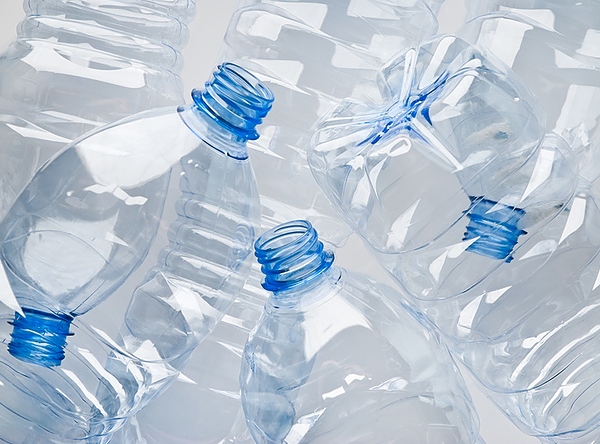PLASTICS AND CLIMATE
EU beverage packaging sector expected to exceed total carbon budget / Radical shift towards bio-based feedstocks for PET containers needed – ZWE report
The use of PET in single-use beverage packaging will have to undergo a radical shift towards bio-based feedstock if the material is to play its part in reducing greenhouse gas (GHG) emissions, in line to meet the 1.5°C climate target by 2050, according to a new report from NGO Zero Waste Europe (ZWE, Brussels; www.zerowasteeurope.eu).
 The report argues that PET containers could feature 80% recycled content by 2050 (Photo: Fotolia/itestro) |
However, the report – Decarbonisation of Single-Use Beverage Packaging – said uncertainty around the future impacts of bio-based production, plus the current technical difficulty in producing 100% bio-based PET, meant that such a move would still prove problematic.
ZWE’s findings, research for which was carried out by UK consultancy Eunomia (Bristol; www.eunomia.co.uk), said glass, aluminium, and PET were projected to surpass their allocated carbon budget by 2050, with PET expected to do so by around 150%.
“The beverage packaging sector in the EU as a whole is expected to exceed its total carbon budget. It is evident that sustaining or increasing current demand for beverage packaging materials is incongruent with achieving a future of less than 1.5°C global warming,” the report added.
Related: Ellen MacArthur Foundation says most firms to miss 2025 packaging targets
Eunomia and ZWE argue that PET containers could feature 80% recycled content by 2050, but while a switch to bio-based content was necessary, “the exact pathway to decarbonisation for bio-based was unclear”.
Included in the report’s list of recommendations was the need for investment in technology, “developing reuse systems, enhanced recycling, and reducing demand for aluminium, PET, and glass materials are recommended as priorities to help the beverage container industry to achieve their net-zero targets”.
PET, along with aluminium, was responsible for GHG emissions per unit of packaging material that were three to four times lower than for glass bottles throughout the decarbonisation pathway, according to the report.
Aline Maigret, head of policy at ZWE, said, “This research shows the EU packaging policy is ill-equipped to deliver on the net zero agenda. Overall material use must be reduced in all packaging categories, and this speaks in favour of ambitious prevention and reuse targets.”
29.06.2023 Plasteurope.com [253105-0]
Published on 29.06.2023
